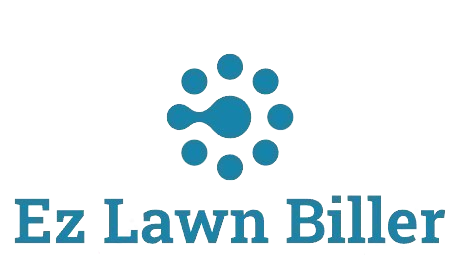Ensuring compliance is crucial for lawn care professionals to maintain their business’s reputation and avoid legal pitfalls. Discover best practices to stay compliant.
Stay Compliant: Best Practices for Lawn Care Pros
Staying compliant is essential for lawn care professionals who aim to provide high-quality services while adhering to legal regulations. This blog post explores the best practices that lawn care businesses should adopt to ensure compliance, covering everything from environmental regulations to client communication. By the end of this article, you will understand how to navigate compliance in your lawn care business, providing a framework that can lead to better service delivery and client satisfaction.
In the competitive world of lawn care, compliance is not just a regulatory burden; it’s an opportunity to build trust with your clients. By adhering to the necessary guidelines and standards, lawn care professionals can enhance their reputation and potentially increase their customer base. This article will delve into the critical areas where compliance is necessary and provide actionable insights to streamline your operations.
From maintaining safety protocols to understanding local regulations, the journey to compliance can often feel overwhelming. However, with the right strategies in place, lawn care professionals can effectively mitigate risks and foster a compliant work environment. This post will cover critical aspects such as understanding legal obligations, implementing best practices, and utilizing technology to ensure compliance.
Understanding Legal Obligations in Lawn Care
The first step for lawn care businesses is to understand their legal obligations. This includes familiarizing yourself with federal, state, and local regulations that impact your operations. For instance, pesticide application must comply with the Environmental Protection Agency (EPA) guidelines, as well as local laws governing pesticide use. Understanding these regulations is crucial to avoiding fines and ensuring the safety of your clients and the environment.
It’s also essential to stay informed about the licensing requirements specific to your region. Many states require lawn care professionals to obtain licenses for using certain chemicals, which often necessitates completing training programs. Keeping your certifications up to date will not only help you to stay compliant but also position you as a knowledgeable and reliable service provider.
Furthermore, adhering to occupational safety regulations is paramount. This includes ensuring that your crew is trained on safe equipment operation, proper handling of chemicals, and the use of personal protective equipment (PPE). Regular safety trainings can help mitigate potential accidents and injuries, keeping your team safe and your business compliant.
Environmental Compliance and Best Practices
Environmental compliance is a significant concern for lawn care professionals. Many clients today are environmentally conscious and prefer services that minimize ecological impact. Therefore, adopting sustainable practices can not only help you stay compliant but also attract more clients.
One way to demonstrate environmental responsibility is by using organic fertilizers and pest control methods. These alternatives often comply with stricter regulations and appeal to eco-conscious customers. Additionally, implementing water conservation techniques, such as drip irrigation and moisture sensors, can help your business align with environmental best practices.
It’s also wise to keep detailed records of all the products you use, including their safety data sheets (SDS). This documentation can be invaluable should any compliance issues arise, as it proves your commitment to responsible practices. Furthermore, many localities have specific recycling or disposal guidelines for lawn care products. Ensuring compliance with these regulations can prevent legal complications and foster community goodwill.
Client Communication and Transparency
Effective communication with clients plays a critical role in maintaining compliance. Being transparent about the services you offer, the products you use, and the potential risks associated with them can build trust with your clients. Providing clear information about your procedures will also help manage client expectations.
To enhance communication, consider implementing a lawn service app that provides clients with real-time updates on services, invoicing, and any potential delays. This can significantly improve client satisfaction and keep everyone informed. By utilizing technology like a lawn billing software, you can automate communications and ensure clients receive timely notifications.
Additionally, offering clients educational resources can help them understand the importance of compliance in lawn care. This could include newsletters, blog posts, or even workshops that cover topics such as product safety, environmental impact, and best care practices. Educated clients are more likely to appreciate the measures you take to stay compliant.
Utilizing Technology for Compliance Management
In today’s fast-paced environment, leveraging technology can significantly simplify compliance management for lawn care professionals. Tools such as lawn service software can help automate various aspects of your business, reducing the likelihood of human error and ensuring adherence to best practices.
For instance, using a lawn company app can streamline scheduling, service tracking, and invoicing processes, allowing you to focus on delivering quality services. Furthermore, these software solutions often come equipped with features that ensure compliance with local regulations, such as automatic alerts for licensing renewals or reminders for safety training sessions.
Moreover, a lawn service computer program can help you maintain accurate records of all services performed, products used, and communications with clients. This data can be invaluable during audits or inspections, providing proof of compliance and demonstrating your business’s commitment to regulatory adherence.
Documenting Procedures and Compliance Measures
Documenting your procedures and compliance measures is a crucial aspect of maintaining compliance in the lawn care industry. Having a clear record of your operational protocols not only helps in training new employees but also serves as a reference during inspections or audits.
Consider creating a compliance manual that outlines your business practices, including safety protocols, equipment usage, and environmental practices. Ensure that all team members are trained on this manual and understand their role in maintaining compliance. Regularly revisiting and updating this manual will keep it relevant and ensure consistent application of best practices.
Additionally, maintaining a log of compliance-related activities, such as safety trainings or equipment inspections, can provide a thorough audit trail. This transparency can be beneficial if any compliance issues arise, showcasing your commitment to industry standards.
Regular Training and Continuing Education
Continual education and training are fundamental to ensuring compliance in the lawn care industry. Regularly scheduled training sessions should cover topics such as safety procedures, product knowledge, and regulatory updates. These sessions not only help keep your team informed but also reinforce a culture of compliance within your business.
Consider enrolling your team in workshops or certification programs relevant to lawn care. Many organizations offer training that covers everything from pesticide application safety to business management best practices. These educational opportunities can be invaluable for staying compliant and enhancing your team’s skill set.
Moreover, implementing a mentorship program where experienced employees share their knowledge with newer team members can foster a supportive learning environment and ensure that everyone is aligned with your business’s compliance goals.
Engaging with Regulatory Bodies and Industry Groups
Engaging with regulatory bodies and industry groups can provide valuable insights into compliance requirements and industry standards. By establishing relationships with local regulatory agencies, you can stay updated on any changes in laws or best practices that could impact your business.
Participating in local lawn care associations or attending industry events can also provide networking opportunities and resources for staying compliant. These gatherings often feature workshops, seminars, and expert panels that address ongoing compliance issues in the lawn care industry.
Additionally, being involved in industry advocacy can give you a voice in discussions about regulations that affect lawn care businesses. This engagement can help ensure that the interests of lawn care professionals are represented and considered in future regulatory decisions.
Conclusion
In conclusion, compliance is a vital aspect of running a successful lawn care business. By understanding legal obligations, adopting environmentally responsible practices, improving client communication, and leveraging technology, lawn care professionals can enhance their compliance efforts. Regular training and engagement with regulatory bodies further solidify a commitment to compliance.
Ultimately, a compliant lawn care business not only mitigates risks but fosters trust and credibility with clients. By implementing these best practices, you can ensure that your lawn care services are not only effective but also responsible. As you prepare for the future, consider tools like [Lawn Biller Software](https://ezlawnbiller.com/) to help streamline your operations and maintain compliance effectively.




